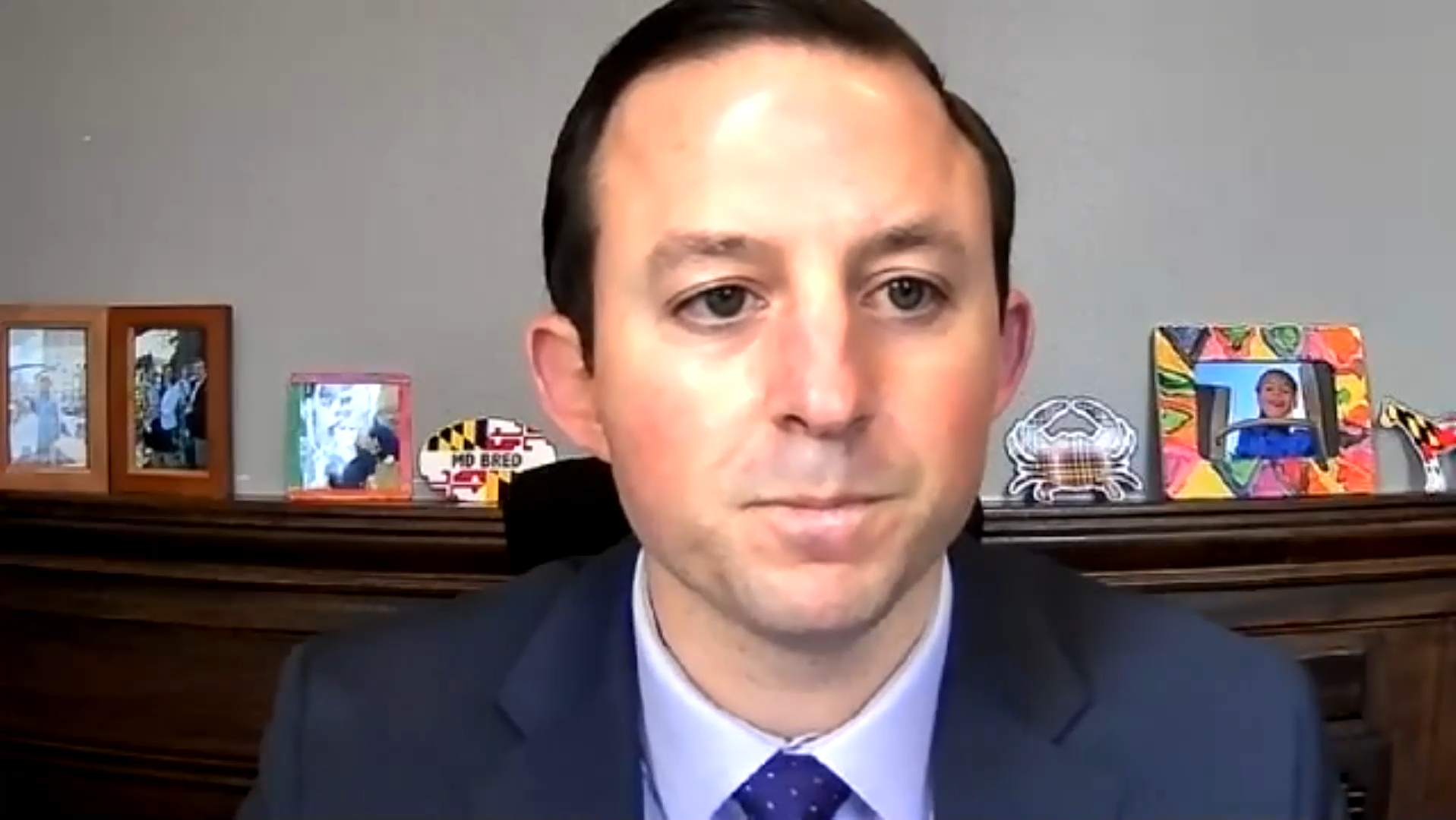SILVER SPRING, Md. — State lawmakers on Wednesday introduced a $520 million amendment to the governor’s $700 million omnibus pandemic relief bill that would provide immediate support to Maryland’s small businesses, nonprofits, and struggling residents.
Senate President Bill Ferguson, D-Baltimore, said the framework of Gov. Larry Hogan’s, R, Relief Act of 2021 is a good start, but the Senate’s amendment will serve as a more targeted package to complement Hogan’s broader bill.
“We know that this crisis has not been felt equally; an equitable recovery is essential,” Ferguson said Wednesday.
The Senate Recovery Now Amendment directs $45 million toward health services and assistance, including mobile and 24/7 mental health services.
“With COVID-19, we have watched as Black Marylanders represent 41 percent of COVID deaths while only representing 30 percent of Maryland’s population,” said Sen. Antonio Hayes, D-Baltimore.
The amendment would provide $14 million to 25,000 people living in health enterprise zones — health department-designated areas that receive particular attention from the state to reduce disparities, improve health outcomes, and reduce costs associated with hospitalizations.
The amendment also designates $20 million to fund mental health initiatives, including substance use disorder treatment to 40,000 Marylanders over the course of six months; $10 million provides grants to every county to assist with vaccine distribution and administration; $1.5 million of this would fund mobile health clinics, to expand access to vaccines.
The Public Health Job Corps would also receive $1 million to fund the recruitment and training of people to administer vaccines.
Public services and welfare are allocated $59 million, which will replace lost fundraising revenue for firefighters, fund food banks and developmental disabilities administration grants, and erase utility debt for 10,800 households.
An allotment of $22 million would restore temporary disability assistance benefits to roughly 7,500 people, provide higher grants for 15,000 recipients of disability benefits, and will increase grant funding by $100 per month.
Businesses struggling due to the pandemic will receive $125 million in assistance.
The funds will help small and minority-owned businesses, which have been disproportionately affected by the pandemic, according to Sen. Melony Griffith, D- Prince George’s and a member of the Senate Budget and Taxation Committee.
“It’s been really hard to watch business owners make really hard decisions like whether or not to layoff employees or close temporarily or permanently,” Griffith said.
Assistance for some 2,200 Maryland businesses totaling $26 million has been made available for those that can demonstrate need and have not received aid in the past.
The extra relief would help fill the gaps to make sure businesses such as those that do not collect sales tax would still be eligible for some type of aid, according to Ferguson.
To aid businesses not eligible for the governor’s plan, which would allow some businesses to hold onto sales tax dollars, $40 million in grants have been made available.
As with restaurant relief, businesses must demonstrate need and have not received past monetary assistance to qualify.
Roughly 22 percent of the amendment’s funds are to be directed toward education assistance.
Programs providing eight weeks of summer school or tutoring for 25,000 students and assistance to local governments in the quest to return to in-person school will each receive $50 million.
Hogan announced last week he is encouraging all school districts in the state to reopen by March 1.
Community college job training programs will also receive $15 million in response to COVID’s effect on the job market.
Sen. Guy Guzzone, D-Howard, chairman of the Senate Budget and Taxation Committee, said that several streams of funding were available to pay for the amendment.
The amendment would draw on $320 million from the state’s rainy day fund, as well as $100 million from the local income tax reserve fund.
Extra funds committed to the Maryland retirement fund totaling $75 million would be redirected to the program for 2021 and 2022.
Guzzone stressed that the money taken would not have negative effects on pensions, describing the allotment as extra cash to boost the system.
“We don’t have to do that, especially in this point and time when the most critical needs are right now,” Guzzone said.
Hogan spokesman Mike Ricci told Capital News Service that many of the proposals in the Senate amendment “consists of things we’ve already done or are doing through $700 million in economic
assistance programs.”

